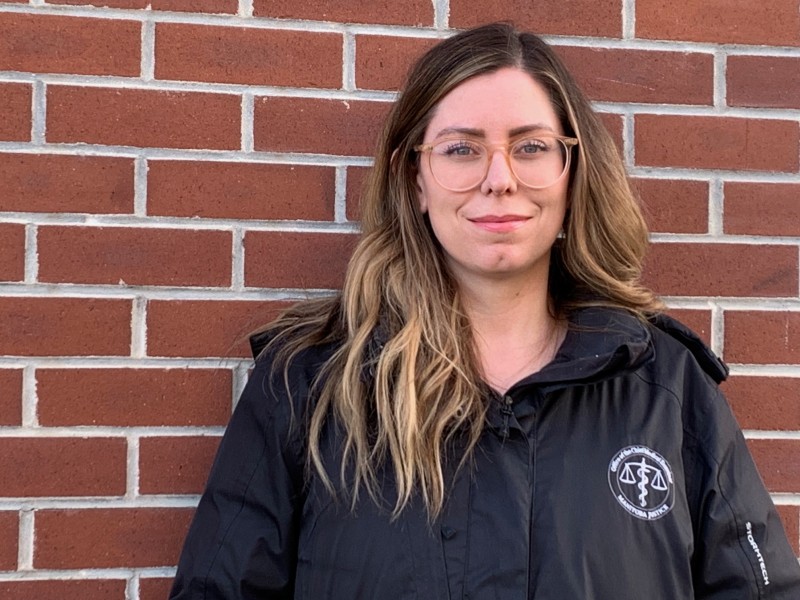Lindsay Friesen: Medical Examiner Investigator - Local 20

Quote
“We are an advocate for that person who can’t speak for themselves anymore.”
Whenever a Manitoban dies unexpectedly, a small handful of nurses known as Medical Examiner Investigators (MEI) remain on call to attend the scene.
“Whether in a hospital, at someone’s home, or at an accident site, we are often the first point of medical contact with the deceased and their family,” said Lindsay Friesen. “It’s our job to both assess the decedent for possible cause of death, to gather pertinent information at the scene, and to guide families through what happens next. When a child dies, or in the case of a suicide or homicide, we work closely with law enforcement in the immediate aftermath and most often, we’re the only ones not in a uniform interacting with loved ones. If an autopsy is ordered, we work to gather all significant medical history to provide to the Medical Examiner and forensic pathologist in order to help them determine the cause of death. When the autopsy is completed, we communicate the findings to the families.”
Not surprisingly, such work requires a unique set of skills and a devotion to being there for others during their most devastating experience.
“When I tell people what I do, I get two reactions. They either say that sounds really amazing, or oh man, I could never, ever do that,” Friesen said. “It’s a job that uses everything I have to give. I am curious by nature. I enjoy critical thinking and the attention to detail required in assisting determining the cause of death, but I also get so much out of working with those left behind. If I can explain things in a way that makes things easier to understand, if I can offer any small piece of comfort, I want to be there.”
Friesen came to the job with a background in emergency, crisis, addictions, and oncology. She said it can be a challenge to maintain her own mental health without becoming desensitized.
“There are times when you have to fight to keep a professional distance and yet you never want to not feel affected by it. Sometimes we can’t give the families the answers they really want, like in the case of a suicide. We can't answer why. But we can still be a sounding board, someone who is there to listen to their story.”
Each MEI comes with differing levels of experience and specialties, and they often consult each other on cases. And while each has their own independent caseload which varies day-to-day, they work out of the same office and also frequently lean on each other for support.
“Since we’re often on call overnight, the job can also be physically challenging, just in terms of lack of sleep. It’s helpful to share with those who’ve been there too and who understand,” Friesen said.
This sense of support for each other took on new meaning over the past year. When the pandemic hit, caseloads went through the roof, since death due to contagious disease that is a threat to public health requires investigation by an MEI. All several hundred Covid-19 related deaths were assigned to the small group of MEIs. By pulling together, and with the support of the union, they eventually convinced the employer that more MEIs must be hired before current staff burnt out and Manitoba families paid the price.
“Without question, I come home feeling more exhausted from this role than any other I’ve done before,” Friesen said, “but that’s okay. Months after a death, I’ll get a phone call or a thank you card from a family and I know I’m doing what I’m meant to do.”
